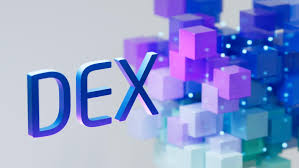Sell Mt.Gox, leave Ripple to create stars, legendary life of coin technology genius Jed
Let's talk about a small piece of information about Ripple. According to Bitcoinist, Ethan Beard, an executive at Ripple's venture capital fund Xpring, said that in less than 12 months, it has been based on XRP. The project invested more than $500 million to improve the Ripple ecosystem and create use cases around XRP. In addition, Ripple CEO Brad Garlinghouse said in a recent Fortune Brainstorming Financial Conference in New York that the launch of Facebook's cryptocurrency Libra helped push Ripple to take on many contracts. So the media began to speculate that Ripple is about to start a new breakthrough?
We all know that Ripple is currently the third largest cryptocurrency in the world, and has repeatedly surpassed Ethereum in number two times in history. But today the focus is not on Ripple, but on the mysterious characters behind Ripple, and the legendary figure and entrepreneurial genius of the currency circle – Jed Mc Caleb (Jed McCaleb). In addition to Ripple, stellar coins, Mentougou, eDonkey, etc. are all his entrepreneurial projects. Today we will restore Jade's legendary life, how he grew up from a small town boy to a blockchain god.
Love programming town boy
Jed was born in 1975 in a small town in Arkansas, USA, where he completed all his pre-university studies. His mother was a journalist. Jed grew up with her mother and often followed her mother to the town and the countryside.
Like many boys, Jade is also interested in mechanical things from a young age, and even splits some small toys to study its mechanical working principle. At the third and fourth grades of Jed Primary School, an unintended experience began to change his life path. At that time, the mother took him to see a programmer friend. The programmer asked Jade to describe the way he imagined the computer game. Jed immediately described it in his mind. After a few weeks, the one The programmer almost wrote a new game in accordance with Jed's description.
- Li Xiaolai sends a new coin, build a new group, are you willing to help him pull the head?
- The company that declared bankruptcy was consistent with the FB goal. Can Libra complete its mission for it?
- Facebook Libra turned out, People’s Daily and CCTV screamed, and the policy should be better?
Jed was shocked. He was deeply impressed by the charm of programming. He thought that programming could be turned from nothing and turned a thought in his mind into a wonderful product. Since then, Jade began to want to learn programming by himself. However, due to his usual living conditions in his childhood, he did not have his first computer until he was twelve or three years old. Before that, Jed spent most of his time studying through books, and occasionally went to a friend's house or school computer room to borrow computer exercises. Even if it is a little difficult, Jade is in it. After many years of self-study, Jade's programming ability as a teenager has been quite good, and I have written some small games. But for Jed at the time, programming was just an interest. Before going to college, his ideal of life was to be a physicist.
Because for him, the world is wonderful, so many disciplines, especially physics, can open a window for him to perceive the world of perception. Jade believes that "every discipline, as long as you sink into school, you will find its true fun, which will help you better understand the world. He admits that he is so fascinated with programming not because programming itself is more interesting than other disciplines. But because programming provides him with more leverage to understand the world, he can use the computer program to better perceive the world."
Later, in 1994, Jed was successfully admitted to the physics school of the University of California at Berkeley, so he came to San Francisco to study. But no one expected that Jade had dropped out of school after only one year. Because he only spent a year studying all the courses, he felt that it would be better to do more meaningful things in the next three years. He believes that with his excellent programming skills, he can support himself.
From the father of eDonkey to the founder of Mt.Gox
In the first four or five years after leaving school, the first meaningful thing Jade did was to start preparing for eDonkey in 1998. Before that, he had been doing some procedures in some software companies, and also with friends. The partnership opened a computer company.
At that time, P2P technology was on the rise. Jade was interested in programming and distributed systems. He planned to create a P2P file sharing network. Users can use eMule to set up their own servers and share various types of files at will.
In 2000, the eDonkey was officially born. Four years later, the eDonkey has surpassed the giant companies of the P2P file-sharing network at that time, including FastTrack and BitTorrent, which accounted for more than 51% of file exchange traffic. Jed is therefore called the "father of eDonkey" in the industry.
However, the good times did not last long. In 2006, eDonkey was sued by the Recording Industry Association of America (RIAA) for copyright issues, paying $30 million and permanently stopping development.
After turning off the eDonkey, Jed crouched for a while. Until Nakamoto's Bitcoin white paper was published, Jed was fortunate to be a very early reader of the white paper. He was thrilled to think that the bitcoin described by Nakamoto was not his vision. With this feeling, Jed began to be associated with Bitcoin. At the time, he found that there was no better way to hold Bitcoin than mine. So he had a bold idea to create a website that could buy Bitcoin freely at any time, so he upgraded to the bitcoin exchange Mt.Gox based on the Mtgox.com domain he had purchased.
In February 2011, as bitcoin prices rose and reached $1 for the first time, Mt.Gox became more popular, and new users and transactions surged. But at this time, Jade sold the company to "MarkKarpelès" and left, because Jed thought that the company was technically not challenging for him at the time, and he was not too Good at operating companies. Fortunately, however, it was precisely because of the sale of Mt.Gox that Jade avoided the risk of bankruptcy of Mt.Gox in 2014.
Leaving Rippo and betting on stars
For Jed, he hopes to constantly change the world through technological innovation. As bitcoin matures, its underlying technology blockchain is gaining more and more attention. Jed still played his keen insight, and he chose to use blockchain technology to solve real problems.
In 2012, he founded the Ripple project, which, unlike Bitcoin, is an open payment network based on distributed technology that allows people to pay in any currency, so the Ripple network is largely It simplifies the international payment exchange process and reduces the transfer cost.
However, Jade is still only interested in research technology, he invited Chris Larsen as the company's CEO, and served as chief technology officer. After the new team was formed, they worked together in the cross-border payment field and issued 100 billion XRPs, hoping to solve the problems of liquidation, slow international transfer and high fees. However, during the development of Ripple, Jed often had a strategic disagreement with the CEO. Finally, Chris was supported by new venture capitalists. Jed was voted unanimously and eventually left Ripple. When he left, Jed still held a lot of XRP, and even later fell into a dispute with Ruibo because of the XRP.
In 2014, Jade set up a new portal and created the blockchain project Stellar, who served as the CTO. Stellar is a decentralized gateway for building a transfer between digital and legal tender. It is a platform for connecting banks, payment systems and the general public with the aim of achieving fast, reliable and virtually cost-free cross-border transfer of funds. A total of 100 billion stellar coins were issued, increasing by 1% each year, 95% of which was distributed free of charge.
At present, the industry generally believes that the two projects of stellar and Ruibo are very similar, but according to Jade, stellar has made many improvements on the technology of Bitcoin and Ruibo, and the performance of the stellar network running node has been achieved in the consensus mechanism and verification algorithm. improve. He pointed out the three differences between stellar and Ripple: First, the management model is different, the star is actually a non-profit organization; second, the majority of Ripple coins are concentrated in the hands of Ripple, and the stellar coins are user-oriented; Third, Ruibo will serve more big banks, and Stellar will focus more on grassroots users or startup groups.
However, this does not mean that Stellar will not cooperate with large organizations. In September 2018, Stellar and IBM jointly launched World Wire, a cross-border payment network based on the Stellar agreement, which provides more than 40 currencies, including stellar coins. Provides near real-time international settlement for dozens of banks.
With the expansion of application scenarios and use cases, stellar coins have become more and more recognized, and market capitalization rankings have repeatedly ranked among the top ten global digital currencies. The current price of stellar coins is about 0.7 yuan, and the market value of circulation is 13.7 billion yuan, ranking 12th.
However, is Stellar the last stop for entrepreneurial genius Jade? Who knows? After all, his entrepreneurial experience reminds me of BM, and even completely crushes BM. Maybe after a while, when he has a new idea, he will once again change the battlefield. However, Jade's belief in blockchain technology is currently firm. Looking back at his period of entrepreneurial experience and life planning, every time he restarts, he has never left his original intention: to change the world with technology.
We will continue to update Blocking; if you have any questions or suggestions, please contact us!
Was this article helpful?
93 out of 132 found this helpful
Related articles
- Regarding the fire currency public chain and Nervos, these 6 questions may be your concern.
- Interview with Babbitt | Connect blockchain technology to 12 provincial courts, how does Zhongjing Tianping use technology to drive the future of law?
- The US Congress asks Facebook to stop Libra, but the social giants are moving frequently.
- Newer than the original segment: blockchain – from the triangle hypothesis to the extended model
- Read the history, current status and future opportunities of decentralized identity recognition
- Viewpoint | Giants enter, super industry cattle or on the road
- Several brain holes launched by Libra: Will Bitcoin become a "digital artifact"?






